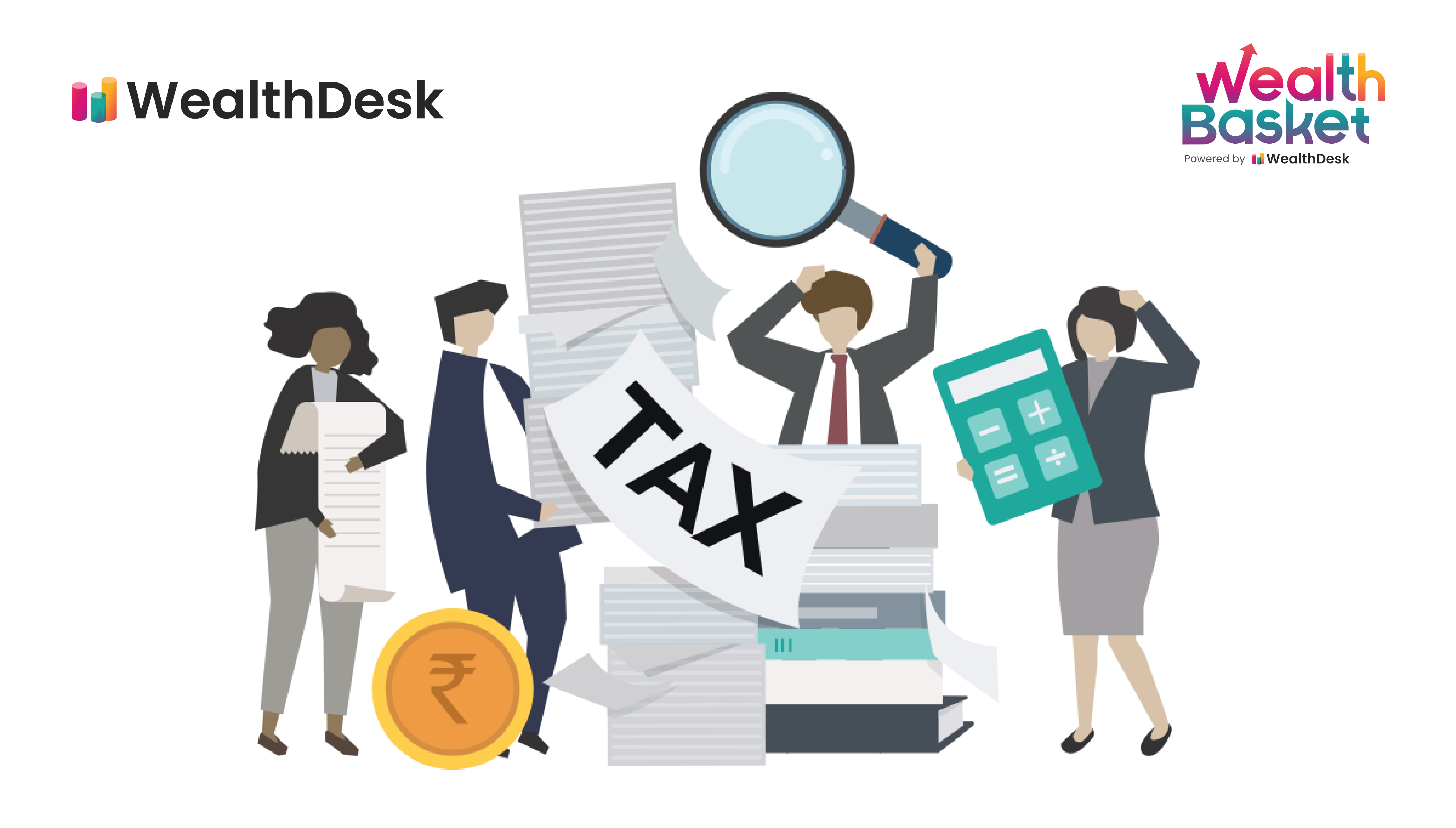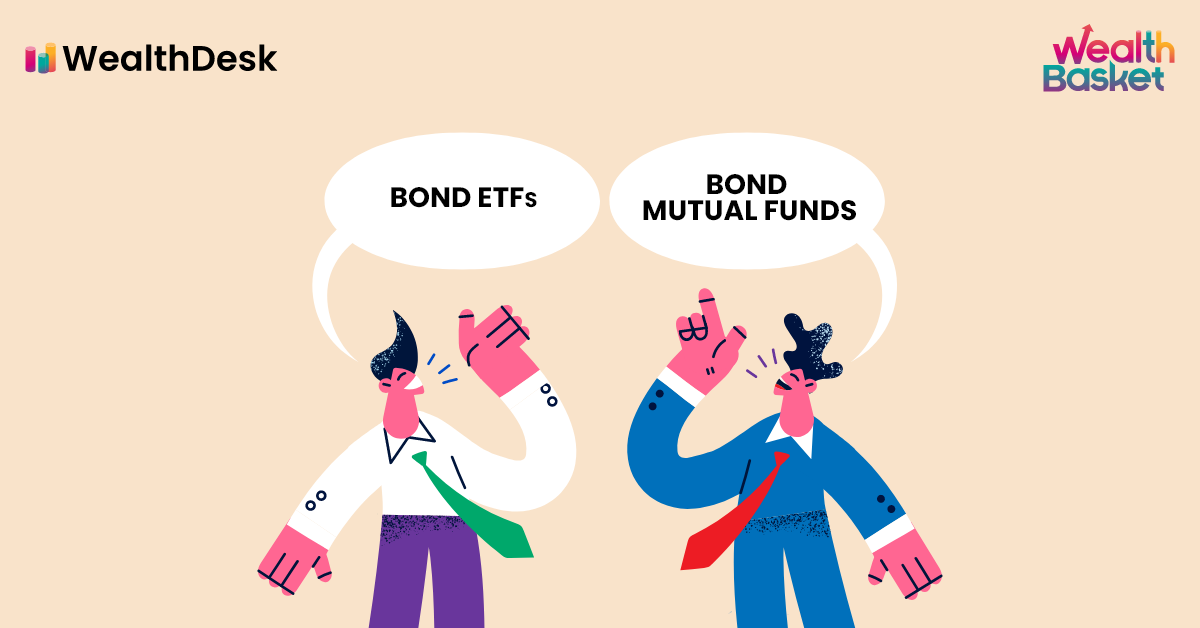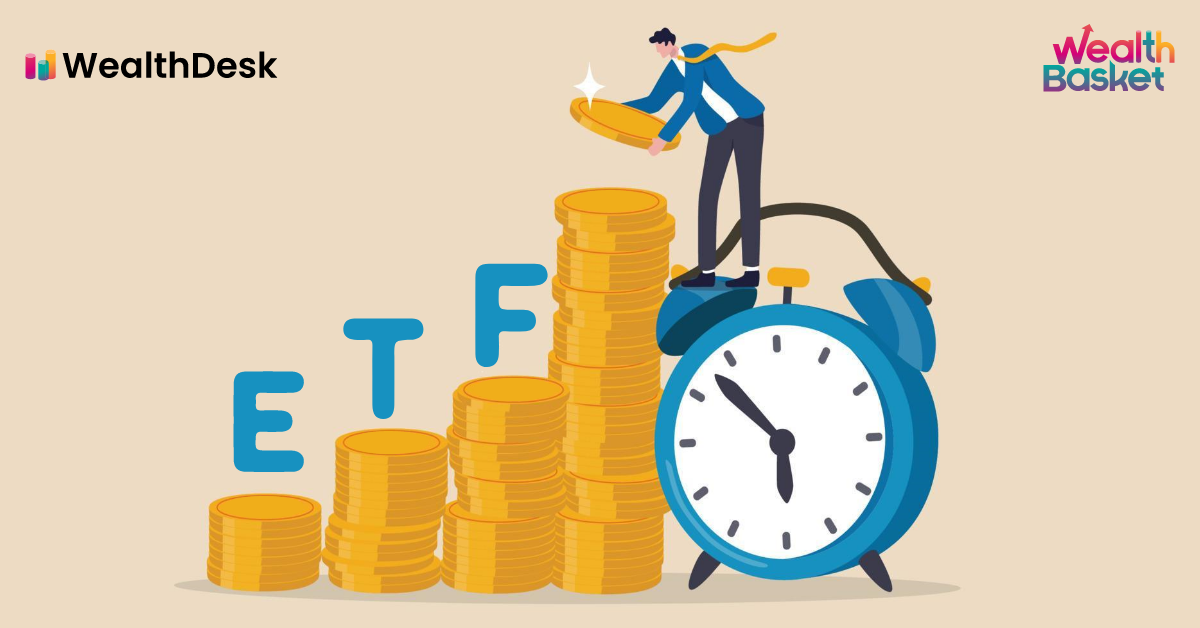Investing in ETFs is a great way to diversify your portfolio and take advantage of tax efficiency. ETFs (Exchange-Traded Funds) are considered a type of security that tracks an index, commodity, or sector. They are bought and sold by consumers just like any other regular equity. Most ETFs in India are passively managed funds that track equity or bond indices or prices of gold or silver.
In India, equity index-tracking ETFs track domestic indices like SENSEX or NIFTY 50 to foreign indices like Nasdaq 100. Gold ETFs and silver ETFs are also available. You can also find ETFs that will give you exposure to government securities.
Skilled traders are aware of the tax benefits of ETFs, which is why they are so proactive in their tactics. This article is focused on helping you understand how ETFs are taxed.
How are ETFs taxed?
ETF and mutual funds receive different tax treatments due to the complex structure of the former. Exchange-traded funds trigger taxable events only when it is sold.
Index and thematic ETFs are taxed as equity funds. To receive long-term capital gains treatment, you have to hold on to them for more than a year. In that case, you will be taxed at 10% without indexation benefit. Holding on to ETFs for anytime less than one full year will result in a short time capital gains treatment, and you will be taxed at 15%. Long-term capital gains of up to ₹1,00,000 are exempt from taxation.
On the other hand, international and gold ETF taxation is done as non-equity funds. To get long-term capital gains treatment, you have to hold these ETFs for at least 36 months. You will be taxed at 20% with the amount of indexation benefit plus any additional cess. In case of short-term capital gains treatment of fewer than 36 months, you will be taxed according to the current tax slab.
Exceptions
There are three major exceptions to the ground taxing rules of ETFs. They are listed as under:
-
Currency ETFs
Currency ETFs are a type of exchange-traded fund that tracks a currency’s current relative value or a set of currencies. It does not benefit from long-term capital gains even if you hold on to it for several years. As currency ETFs trade in pairs of currencies, taxation authorities may presume that these exchanges occur in short periods.
-
Futures ETFs
Futures ETFs are a type of exchange-traded fund that invests in futures contracts to mirror an underlying index’s performance. Regardless of how long the ETF holds the contracts for, gains or losses on futures ETF are taxed as 40% short-term capital gains and 60% long-term capital gains.
-
Metals ETFs
Metals ETFs are a type of exchange-traded fund that invests in physical metals considered ‘collectibles’ for tax purposes. If you make a short-term gain from these ETFs, it will be taxed as regular income, but if you make a long-term gain from over a year, you will receive a higher tax rate of 28%.
Discover stocks that suit certain filter criteria and dive into details to check their WealthBaskets.
Tax Planning Strategies with ETFs
The following are some effective tax planning strategies that help you keep your tax bill low while using ETFs.
- Closeout losses before a year: If you know a position will lose money, it’s a good idea to close it out right before the end of the year. It permits you to achieve long-term capital gain treatment for only your lucrative holdings, lowering your tax obligation.
-
Buy an identical ETF: If you believe
a certain position will increase in value over the
next few months, but the market is pulling sectors
down, it is a good idea to sell that ETF and replace
it with one that has a comparable but different index.
In this manner, you’ll maintain your profitable
sector while only losing money on the one you sold at
a loss.
- Purchase Sector ETFs: If you have a position that is now losing money but is expected to rise in value over the next year, you should sell the ETF and buy sector ETFs to maintain your exposure to the sector.
Final Thoughts
ETFs (Exchange-Traded Funds) are a wonderful addition to anyone’s portfolio since they give diversification in investing and a lot of tax benefits. By investing in them and preparing year-end strategies, competent investors may easily optimise their gains. With respect to capital gains, ETF or mutual funds goes in favour of the latter as it is shown that mutual funds generally provide more capital funds. On the other hand, ETFs are frequently recommended to investors wanting to save money on taxes. You may save even more money on taxes as an investor by selling positions that are losing value at the end of the year and receiving long-term capital gain treatment on those that are profitable and increasing in value.
You can also invest in tax-saving ETFs that do not follow ETF tax regulations, such as currency, future, or metal ETFs. Tax on gold ETFs and international ETFs are provided as non-equity ETFs. At the same time, index and sectoral ETFs are treated as equity funds for ETF taxation in India. As for tax-free ETFs, municipal bonds are tax-free since you’re investing in a local government. Municipal bonds can provide you with tax-free ETF dividends.
At WealthDesk, experienced advisors analyse the best ETFs in India and help investors with their ETF investments. It also allows investors to make informed decisions about different ETF stocks and shares based on their targeted risk and return considerations.
FAQs
One common practice is to close off money-losing holdings towards the end of a year. Only profitable holdings will remain in your portfolio for the foreseeable future, allowing you to reap long-term capital gains. This method helps you to lower your tax liabilities.
Yes. ETFs can be purchased and sold on the same day.
ETFs are much more tax-efficient than Mutual Funds because of their complex structure.
The buy-sell spread and brokerage fees are additional charges that investors face when buying or selling ETF units. These fees are not levied by the ETF provider but rather by the market maker and the investor’s stockbroker, respectively.


















